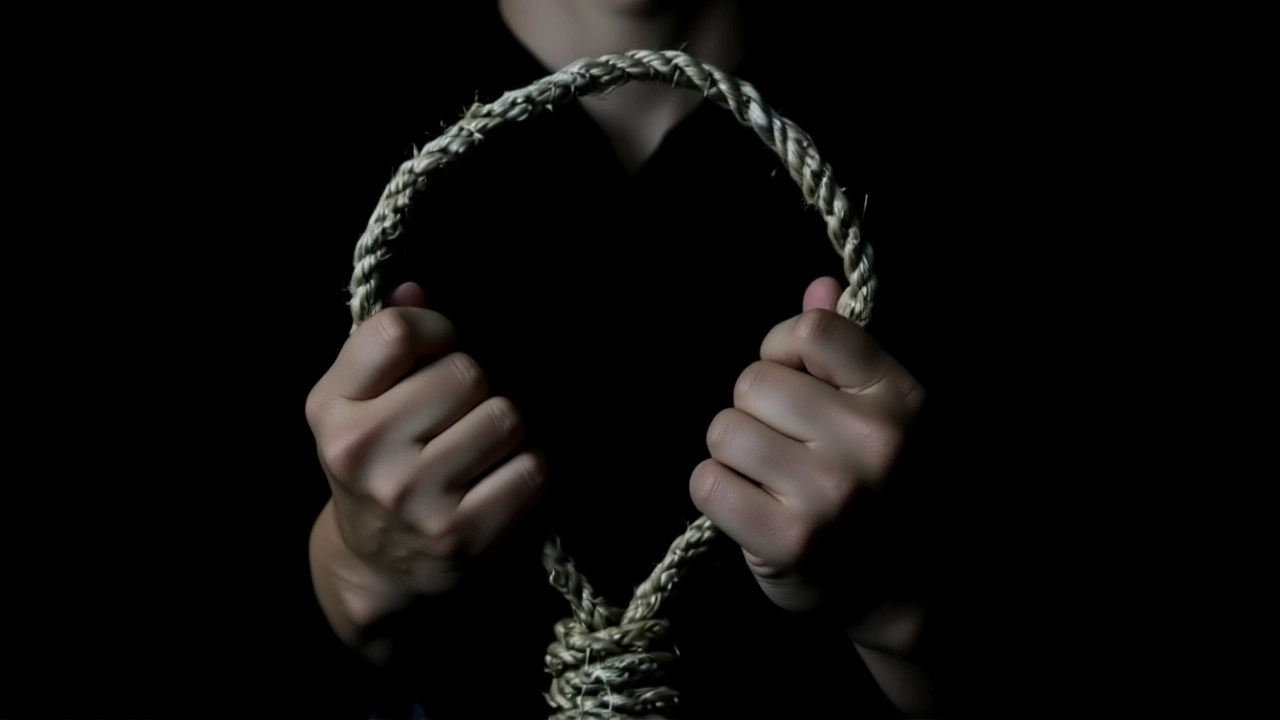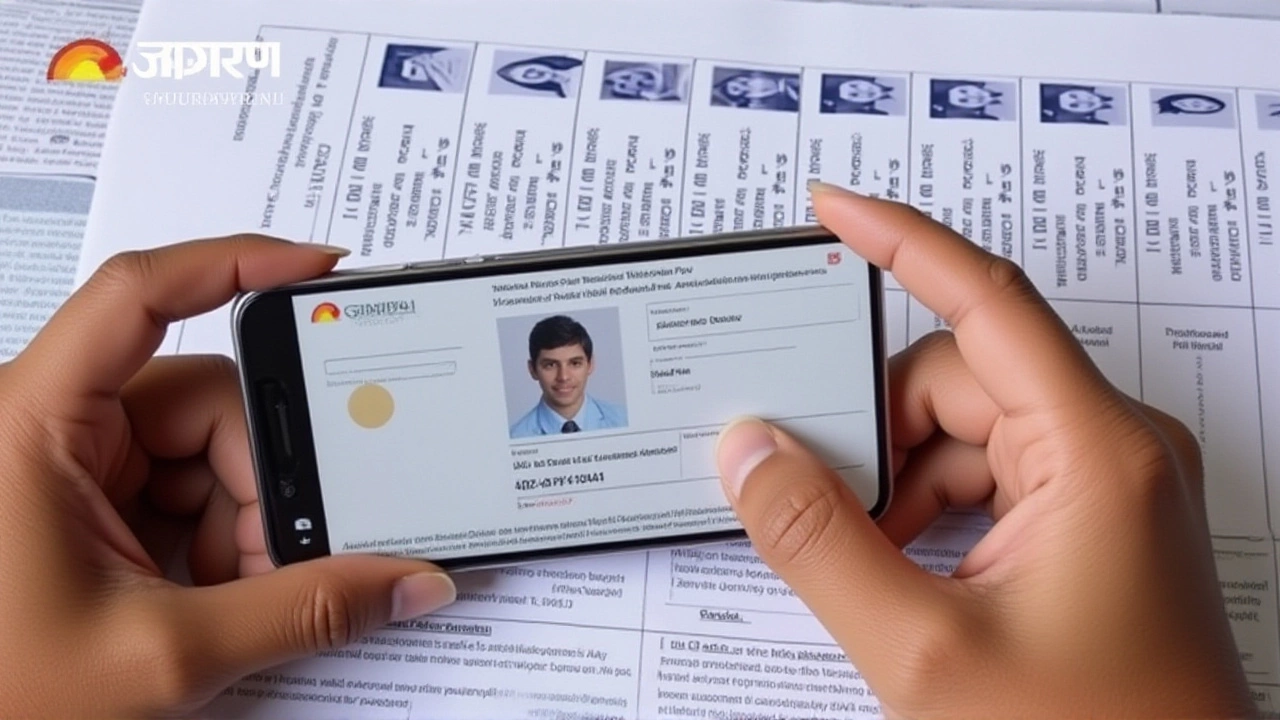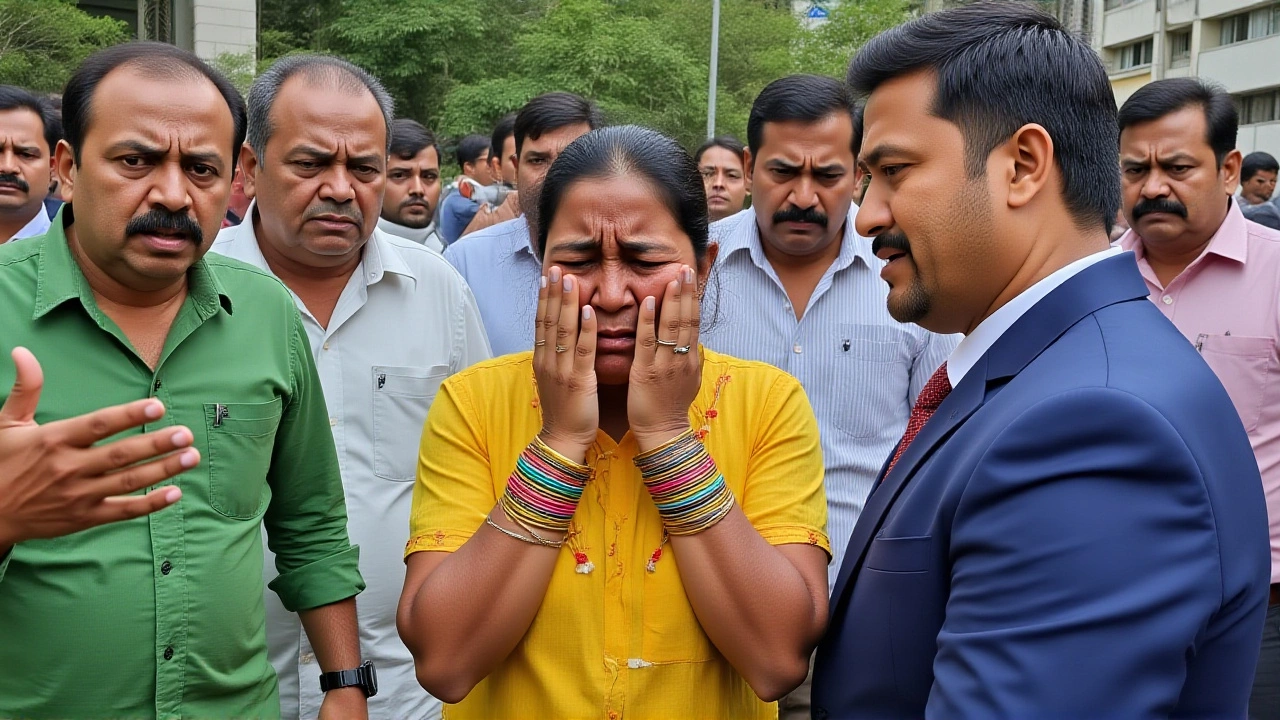When Shyamali Mandal, a Block Level Officer (BLO) in Salanpur Block, West Bengal, broke down in tears during a meeting with S. Ponnabalam, the District Magistrate, she wasn’t just expressing personal stress—she was giving voice to a systemic crisis. "Too much work, sir... I can’t handle this pressure," she said, her voice cracking, before collapsing into sobs. The raw, unfiltered video, recorded on November 12, 2025, has since gone viral, exposing the crushing weight carried by frontline government workers in India’s most politically active states.
The Breaking Point
It happened during a routine review meeting at the Salanpur Block office. Shyamali Mandal, a woman in her late 30s, had been juggling her regular BLO duties—verifying voter lists, updating addresses, resolving discrepancies—with additional responsibilities under the SIR Project, a state-level initiative to digitize and streamline electoral records. No one had told her the workload would double. No one had offered relief. When she finally spoke up, the dam broke.
"I’m not physically okay," she told Ponnabalam, wiping tears with her sari’s edge. "And mentally? I haven’t slept properly in weeks. My husband says I talk in my sleep—muttering voter IDs and form numbers. I’m not a machine. I’m a person."
Why This Matters Beyond One Woman’s Tears
BLOs are the invisible backbone of India’s electoral machinery. In West Bengal, where elections are fought with near-military intensity, BLOs are expected to verify millions of voter entries, often with minimal staff, outdated tools, and zero mental health support. The SIR Project, meant to modernize the process, instead became a burden multiplier. In West Bengal’s Paschim Bardhaman district alone, each BLO now handles an average of 18,000 voter records—up from 9,000 in 2023.
Shyamali Mandal isn’t alone. According to internal district records obtained by local journalists, 68% of BLOs in the district reported symptoms of anxiety or burnout in the last six months. Twenty-three have taken medical leave since July. Only two have been replaced.

DM’s Response: Sympathy, But Where’s the System?
S. Ponnabalam didn’t dismiss her. He didn’t tell her to "toughen up." Instead, he leaned forward, placed a hand on the table, and said, "You’re right. This isn’t fair. We’ll fix this."
He promised immediate relief: a temporary reassignment of half her SIR Project tasks to a junior officer, a mental health counselor visit, and a full audit of BLO workloads across the district by November 20. He also pledged to meet with state election officials within 72 hours.
But here’s the twist: Ponnabalam’s compassion is rare. In most districts, such emotional outbursts are met with silence—or worse, reprimands for "unprofessional behavior." The fact that he responded with empathy, not bureaucracy, says more about his character than the system’s resilience.
The Bigger Picture: When Democracy Relies on Burned-Out Workers
India’s election system is famously robust—but its human infrastructure is crumbling. BLOs are mostly women, often from rural backgrounds, paid ₹15,000–₹20,000 per month for work that demands 12-hour days, seven days a week during peak season. Many juggle childcare, household duties, and farming responsibilities on top of their official roles.
In Kolkata, just weeks before this incident, a similar story emerged: a young BLO collapsed at a polling booth after working 38 consecutive days. She was revived with saline, sent home, and told to return the next morning.
This isn’t about one overwhelmed officer. It’s about a democracy that asks its most vulnerable workers to carry its heaviest load—and then acts surprised when they break.

What Comes Next?
Within 48 hours of the video going public, the West Bengal Election Commission issued a statement promising a "review of BLO work distribution." But no concrete timeline was given. The state’s Chief Electoral Officer, Dr. Arindam Chatterjee, has yet to comment publicly.
Meanwhile, Shyamali Mandal has been temporarily reassigned to desk duties. She’s scheduled to meet with a psychologist this week. Her colleagues say she’s quieter now. Less likely to laugh. More likely to stare at her phone—waiting for the next form, the next verification, the next demand.
Without systemic change, another Shyamali Mandal will break. And another. And another.
Frequently Asked Questions
What is the SIR Project and why is it increasing BLO workload?
The SIR Project (Systematic Identification and Registration) is a state initiative to digitize and cross-verify voter data using biometric and Aadhaar-linked records. While designed to reduce fraud, it’s added 40–60% more manual tasks for BLOs—like re-verifying addresses, resolving mismatches, and training voters—without increasing staff or resources.
Why are women BLOs disproportionately affected?
Over 70% of BLOs in rural West Bengal are women, often from low-income households with limited support systems. They’re expected to work long hours while managing domestic responsibilities. Unlike male counterparts, they rarely receive childcare support or flexible hours, making burnout far more likely—and less visible.
Has this kind of breakdown happened before?
Yes. In 2021, a BLO in Bihar collapsed during a voter verification drive and died shortly after. In 2023, a woman BLO in Odisha took leave after suffering a panic attack. But these incidents rarely make national headlines—and rarely lead to policy changes. This time, the video made it impossible to ignore.
What can be done to prevent this from happening again?
The state must cap BLO workloads at 10,000 records per officer, hire temporary staff for digital projects, provide mandatory mental health check-ins, and offer hazard pay for election season. Without these, the system will keep exploiting the very people who make democracy function.
Is there any official data on BLO burnout rates in West Bengal?
The state election commission doesn’t publish official burnout statistics. But internal surveys from 2024 show 62% of BLOs reported insomnia, 54% said they felt "constant dread," and 31% admitted they’d considered quitting. These numbers were shared only with district magistrates—never made public.
How has the public reacted to the video?
The video has been viewed over 12 million times. Hashtags like #ShyamaliMandal and #BLOsAreNotMachines trended for three days. Civil society groups are demanding a statewide audit of BLO conditions. Even opposition leaders, usually quick to criticize the government, have called the incident "a national shame."
